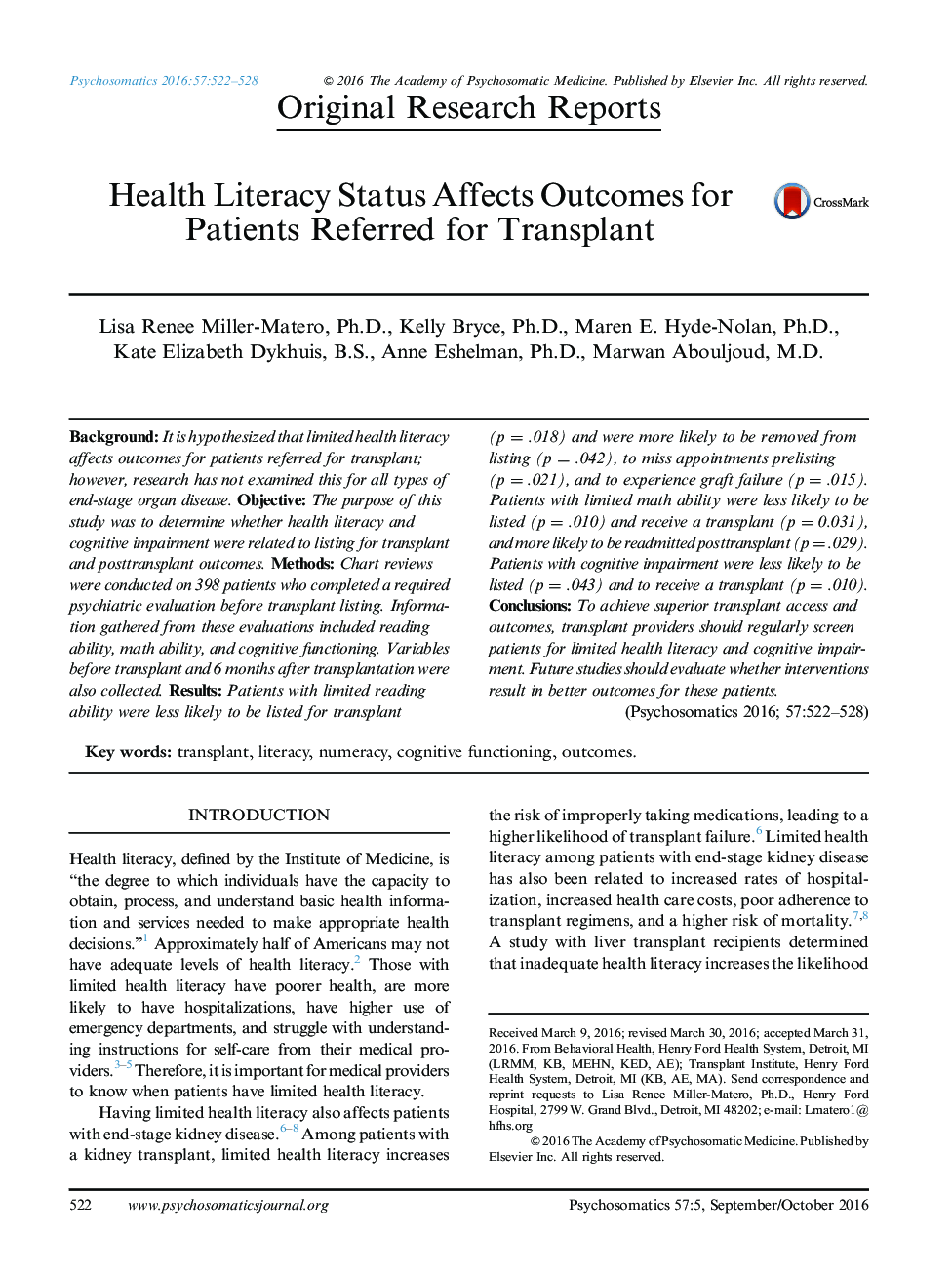| Article ID | Journal | Published Year | Pages | File Type |
|---|---|---|---|---|
| 4934757 | Psychosomatics | 2016 | 7 Pages |
BackgroundIt is hypothesized that limited health literacy affects outcomes for patients referred for transplant; however, research has not examined this for all types of end-stage organ disease.ObjectiveThe purpose of this study was to determine whether health literacy and cognitive impairment were related to listing for transplant and posttransplant outcomes.MethodsChart reviews were conducted on 398 patients who completed a required psychiatric evaluation before transplant listing. Information gathered from these evaluations included reading ability, math ability, and cognitive functioning. Variables before transplant and 6 months after transplantation were also collected.ResultsPatients with limited reading ability were less likely to be listed for transplant (p = .018) and were more likely to be removed from listing (p = .042), to miss appointments prelisting (p = .021), and to experience graft failure (p = .015). Patients with limited math ability were less likely to be listed (p = .010) and receive a transplant (p = 0.031), and more likely to be readmitted posttransplant (p = .029). Patients with cognitive impairment were less likely to be listed (p = .043) and to receive a transplant (p = .010).ConclusionsTo achieve superior transplant access and outcomes, transplant providers should regularly screen patients for limited health literacy and cognitive impairment. Future studies should evaluate whether interventions result in better outcomes for these patients.
